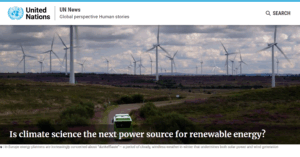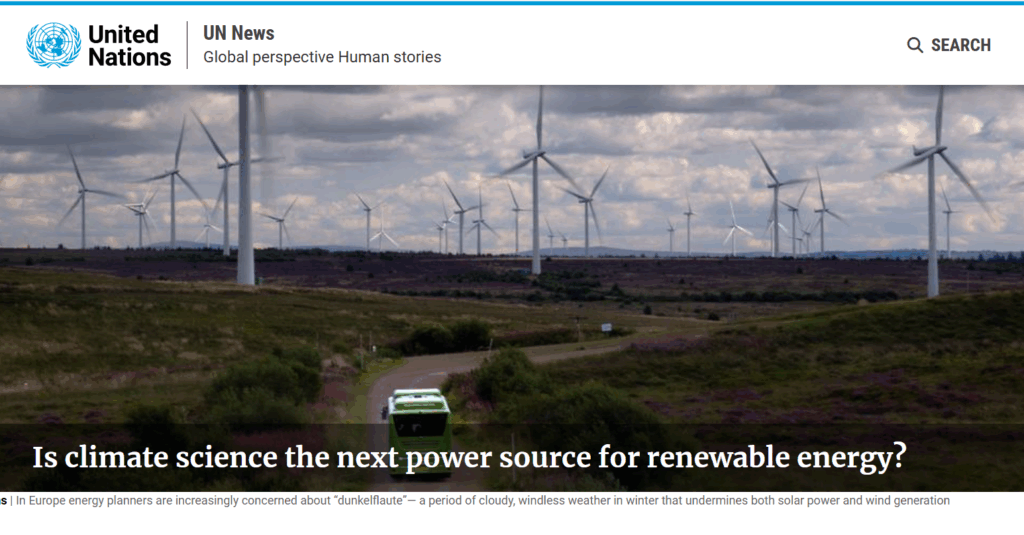Roberta Boscolo and Hamid Bastani from the World Meteorological Organization (WMO), are calling for a radical rethink in how renewable energy systems are designed and operated. Speaking to UN News, they stressed that the future of clean energy depends not just on expanding solar panels and wind turbines—but on integrating climate intelligence at every stage of planning. Ms. Boscolo and Mr. Bastani are among the contributors to a recent WMO–IRENA study examining how climate conditions in 2023, shaped by El Niño, global warming, and regional extremes, affected both renewable energy generation and energy demand worldwide.
Their message comes as the world sets a new record: renewable energy capacity grew by 585 gigawatts in 2024, with solar accounting for over 73% of additions. But 2023 revealed deep vulnerabilities in the sector, as extreme weather—amplified by global warming and El Niño—caused severe disruptions to hydro, wind, and solar generation across multiple continents.
Hydropower output in countries like Sudan and Namibia dropped by more than 50% due to drought, while wind production in China, India, and parts of Africa declined amid shifting patterns. Meanwhile, South America saw gains in solar energy thanks to clearer skies and increased solar radiation.
Boscolo warned that many energy systems were built on outdated climate assumptions. “We must design for the climate of the future—not the past,” she said. Bastani added that forecasting and AI tools are now essential for anticipating climate-driven shifts and ensuring grid reliability.
The WMO, in collaboration with IRENA, is working to help governments adopt climate-smart strategies. Pilot projects in Costa Rica and Chile show how AI and seasonal forecasting can optimize energy output and protect resources like water.
However, they caution that much of the Global South still lacks the data and infrastructure to fully benefit from these tools. They call for greater investment in regional climate services, cross-border cooperation, and access to climate-informed planning resources.
“The clean energy transition is also a development opportunity,” Boscolo noted. “But to succeed, it must be resilient—backed by science, data, and long-term vision.”

